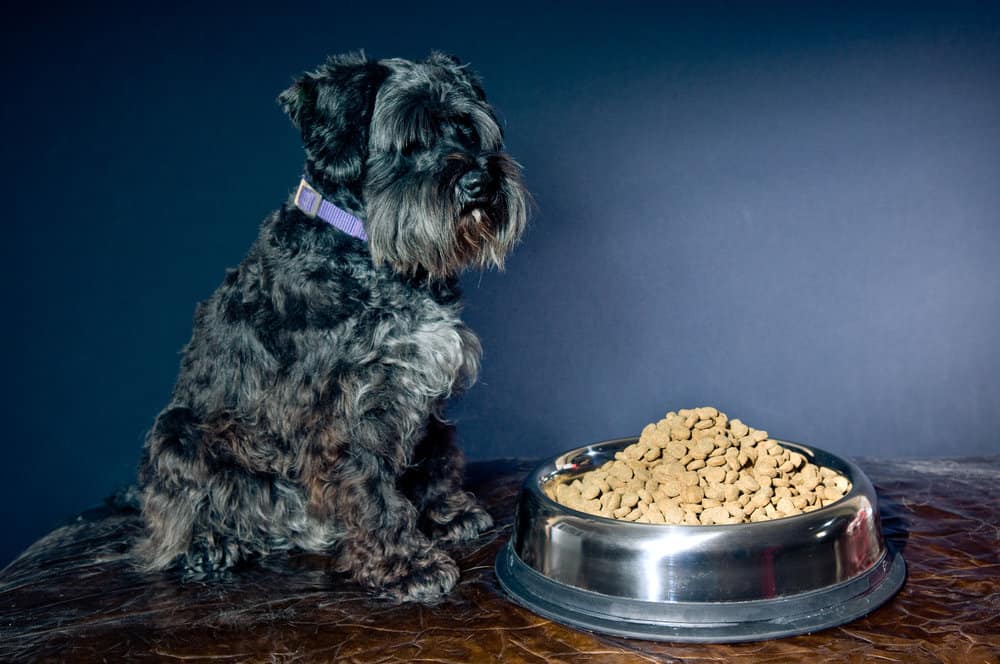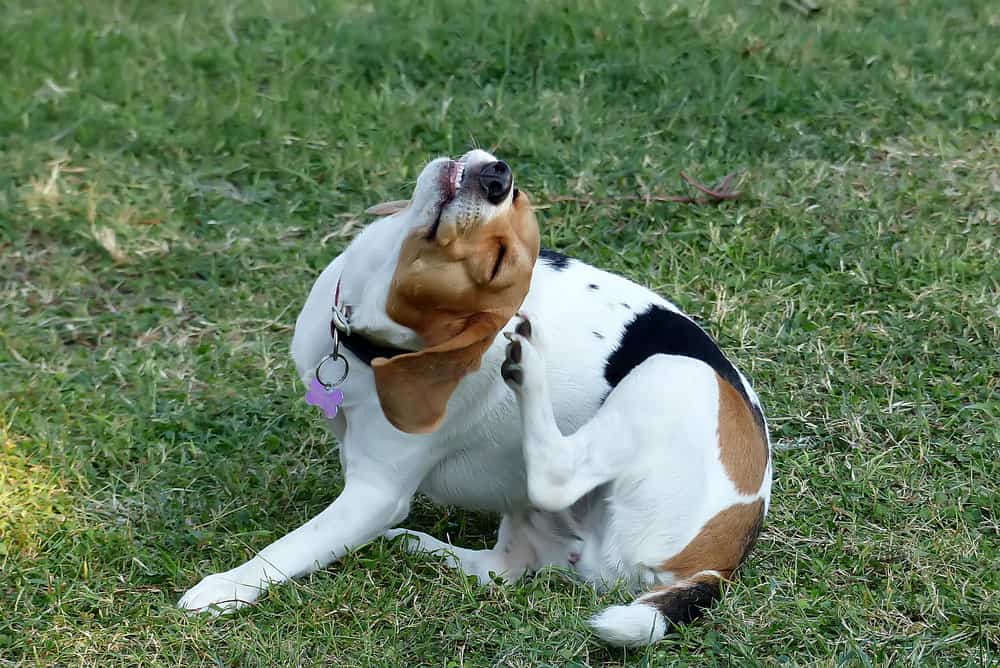The reasons why puppies start shaking after eating include too much food and indigestion. Also, intense emotional states and temperature drops can be the culprit.
Puppies are tiny balls of energy that seem to be constantly moving. Sometimes they run around, while other times they tremble.
Seeing your puppy shaking can be alarming if you don’t know what’s going on, especially after a big meal. You’re left wondering, why is my puppy shaking after eating? Read on to find out.
Reasons Your Puppy Is Shaking After a Meal
There are many reasons your puppy may shake after a meal. Some of these causes are due to environmental factors, while others are medical.
Too Much Food

The most common culprit when it comes to your puppy trembling after a meal is too much food.
Dogs, as a species, have a hard time controlling their appetite, which is especially true for pups.
The little furballs don’t necessarily eat until they’re full and then stop. They keep eating until they finish off whatever’s on their plate.
For the most part, this doesn’t present a major issue. However, if you put too much food in front of your puppy, they may end up with indigestion.
As a side effect, your pet may simply start to shake or go as far as to throw up.
Solution
If too much food is the issue, the solution is simple. All you have to do is withhold food for a couple of days. It may seem harsh, but it’ll help stop the shaking.
After withholding food, you want to start rationing your puppy's food. This doesn't necessarily mean giving the furball less food, just not a whole lot at once.
Breaking up the meals into small portions will help your puppy avoid this issue in the future.
Indigestion
Another common reason behind an after-meal wiggle is indigestion. While it may not seem like it, some puppies have sensitive digestive tracts.
This means that you need to be careful what you feed your pup.
Changing up your canine friend’s diet may be the reason behind its trembling. If you’ve switched your puppy from dry food to wet or vice versa, it may cause digestive issues.
While these issues don’t usually cause shaking, they can be the culprit.
Solution
The easiest solution to this is to eliminate the food that’s causing the issue. Usually, the problem will resolve itself quickly after that.
However, it may not always be that simple. If you changed up your puppy's diet for medical reasons, then it isn’t straightforward.
You’ll need to contact your vet to figure out a new diet for your buddy.
Helpful Dog Training Resource:
For help with training your dog, you should take a look at The Online Dog Trainer by Doggy Dan. Doggy Dan is an expert Dog Trainer based in New Zealand. His online resource contains Hundreds of Excellent Dog Training Videos that will take you step-by-step through the process of developing a healthy, happy well-behaved dog.
Allergic or Toxic Reaction
If your puppy is heavily shaking after a meal, the issue may be an allergic reaction. Still, there are usually other symptoms.
These symptoms can include swelling, itchiness, and rashes. The symptoms may even go as far as gagging or retching.

A toxic reaction can also have the same effect. This happens when puppies eat something they’re not supposed to, like soap or detergents.
Solution
Allergic reactions can be dangerous if you don’t treat them right away. With that in mind, you should go see your vet as soon as possible.
Still, if your dog ate something that they shouldn’t have eaten, contact Animal Poison Control right away.
Temperature Changes
When we eat a large meal, we tend to feel lethargic and sleep afterward. This is because a lot of our blood rushes to the stomach to help with digestion.
The same thing happens with puppies!
After a huge meal, most of the furball's blood will redirect towards the stomach. This shift can cause your puppy to get a little chilly. The chilliness can then translate into shaking.
Solution
There’s no real solution for this issue, but there are a couple of things you can do.
The first is to place your puppy's food bowl in a warm area. A temperature of 75℉ to 78℉ should do the trick.
If temperature control isn’t possible, you can try cozy attire. Putting a little sweater or blanket on your puppy will help keep it toasty. Besides, it’ll look adorable!

Intense Emotional State
We all know that our canine friends are sensitive souls. They feel just as intensely as we do. This may sometimes lead to physical manifestations.
Strong emotions like stress can lead your pup to shiver or shake. For example, if you’re taking a trip to the vet right after a meal, your dog may feel nervous. Separation anxiety can also have a similar effect!
The same applies to excitement. If your furry little friend is anxious to go out for a walk right after dinnertime, he may start quivering.
Solution
For the most part, this issue isn’t severe. It’s perfectly natural for your dog to shake a little and express its emotions.
However, if your dog shakes for long periods, you may have to intervene. The first thing you should do is remove whatever’s causing the emotional state behind the shaking.
You want to calm your pet down and give him a moment to relax. This is also an excellent opportunity to get some quality cuddle time with your pup.
To help with this issue, you can also try dog training. It teaches puppies discipline and gives them a better grasp on how to channel emotions.
Helpful Dog Health Resource:
Note: Our Health is #1 Priority. It should be no different for your dog. But you need to help him. The Ultimate Guide to Dog Health is the answer. This handy guide will help you recognize the symptoms of the health problems above. Get the knowledge to stay ahead of these terrible issues that can rob your lovely dog from vigor and life. Help your friend make it to 14 yrs+ without pain and suffering.
Medical Conditions
Food and environmental conditions aren’t the only causes behind puppies' shaking. There are also are a few medical conditions that can cause your puppy to shake:
- Hypoglycemia (low blood sugar)
- Hypocalcemia (low calcium)
- Addison’s disease
It’s unlikely that a single dinner would cause any of these issues. Still, the meal could’ve made an existing problem worse.
There are also infections that can cause tremors, like distemper.
Solution
Depending on the medical condition, your course of action will change. You can fix most of these issues with a diet swap.
Finding out what your puppy is missing and giving it to him can take care of the problem. However, if your dog has an infection, you need to take your pet to a vet as soon as you can.

Paul has been creating content for the dog niche for many years. The information he shares comes his first hand experience growing up in dog lovers household and then owning multiple dog breeds of his own as an adult. Paul enjoys doing the hard research to collect, analyze and present our dogtemperament.com readers with the best answers to their questions.